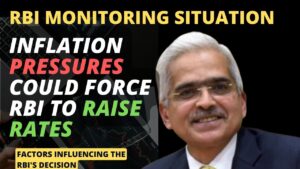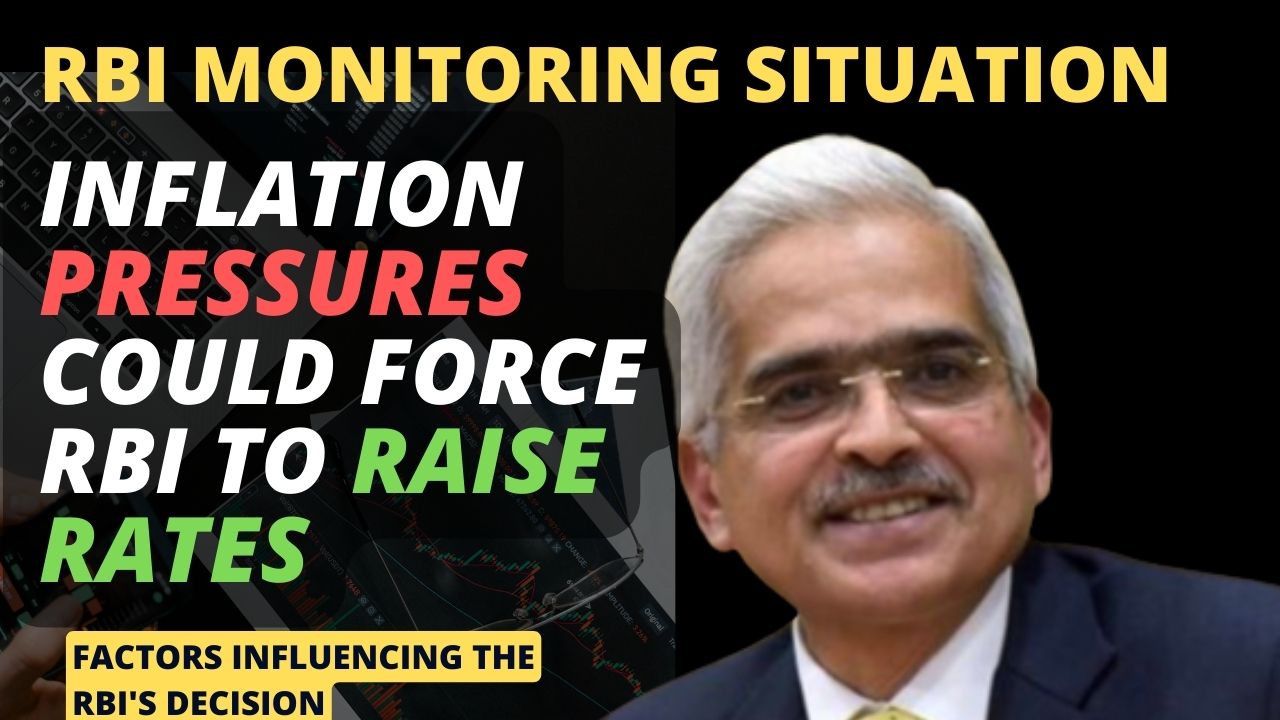RBI monitoring situation: Inflation Pressures Could Force RBI to Raise Rates

RBI monitoring situation: The Reserve Bank of India (RBI) is facing a challenging decision in the face of global monetary uncertainty. While some central banks are raising rates, the RBI is considering extending its pause. This article will explore the factors that are influencing the RBI’s decision, including the monsoon season and recent growth figures.
The RBI has been on a path of monetary tightening since early 2022. In April, the RBI raised rates by 40 basis points, bringing the repo rate to 4.40%. This was the first rate hike since August 2018. The RBI has cited several reasons for its decision to tighten monetary policy, including rising inflation and concerns about financial stability.
Factors Influencing the RBI’s Decision
The RBI is facing a number of factors that are influencing its decision on whether to raise rates. These factors include:
Global monetary uncertainty:
The war in Ukraine has caused energy and commodity prices to surge, and central banks around the world are raising rates in an effort to combat inflation. This has led to concerns that the RBI may need to slow down its tightening cycle.
Government pressure: RBI monitoring situation
The government is concerned about the impact of higher interest rates on economic growth. The government has recently announced a number of measures to boost growth, including a fiscal stimulus package and a reduction in corporate taxes.
Monsoon season: Inflation Pressures
The monsoon is crucial for India’s agricultural sector, which accounts for about 15% of GDP. A poor monsoon could lead to lower agricultural output and higher food prices. This would put upward pressure on inflation and could force the RBI to raise rates.
The RBI is facing a difficult decision. On the one hand, it needs to take steps to control inflation. On the other hand, it needs to avoid raising rates too quickly, which could hurt economic growth. The RBI is likely to extend its pause for now, but it will be keeping a close eye on the global economic environment and the monsoon season. If either of these factors worsen, the RBI may be forced to raise rates sooner than expected.
Conclusion
The RBI is facing a challenging situation. It needs to balance the need to control inflation with the need to avoid hurting economic growth. The RBI is likely to extend its pause for now, but it will be keeping a close eye on the global economic environment and the monsoon season. If either of these factors worsen, the RBI may be forced to raise rates sooner than expected.

